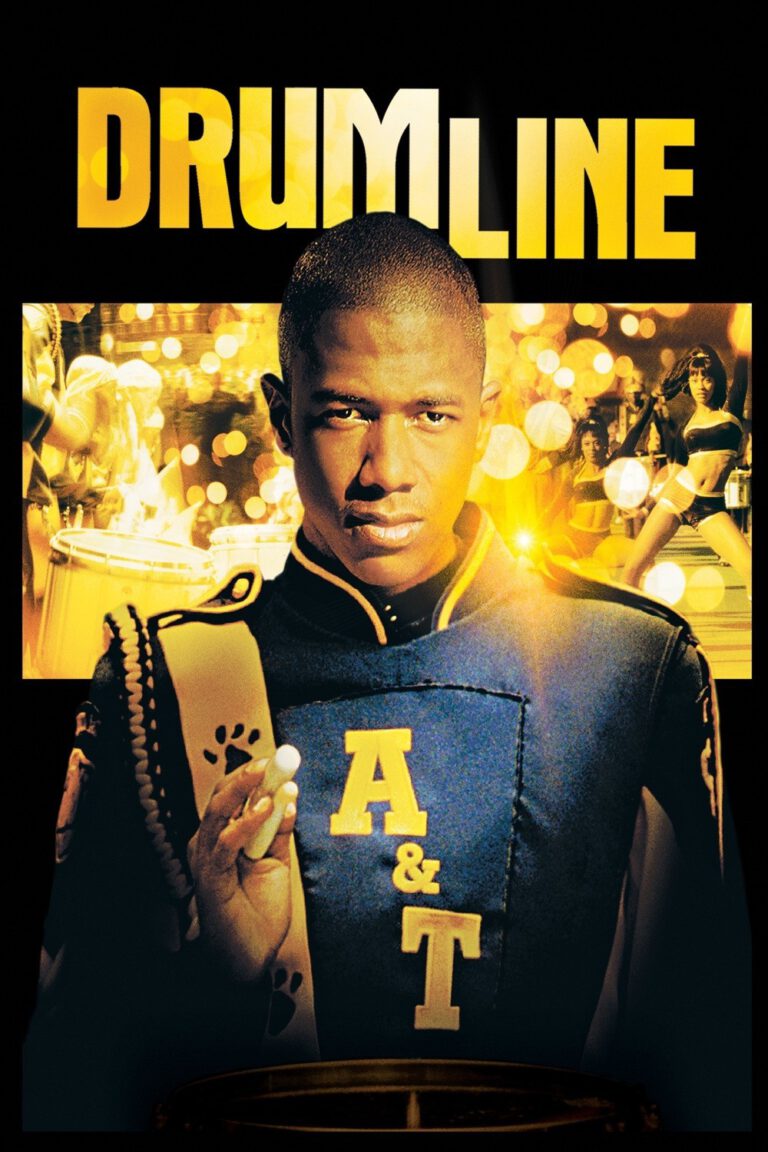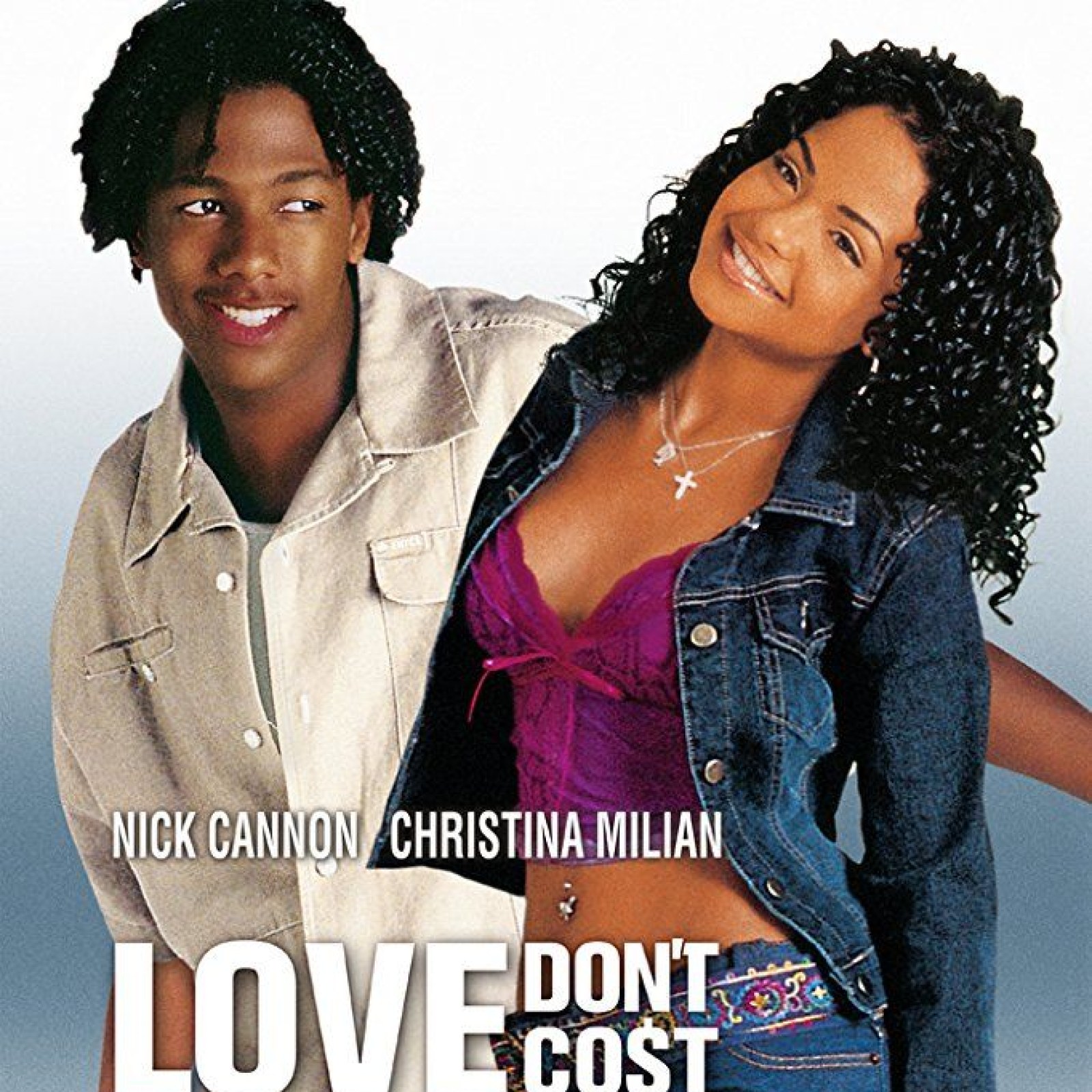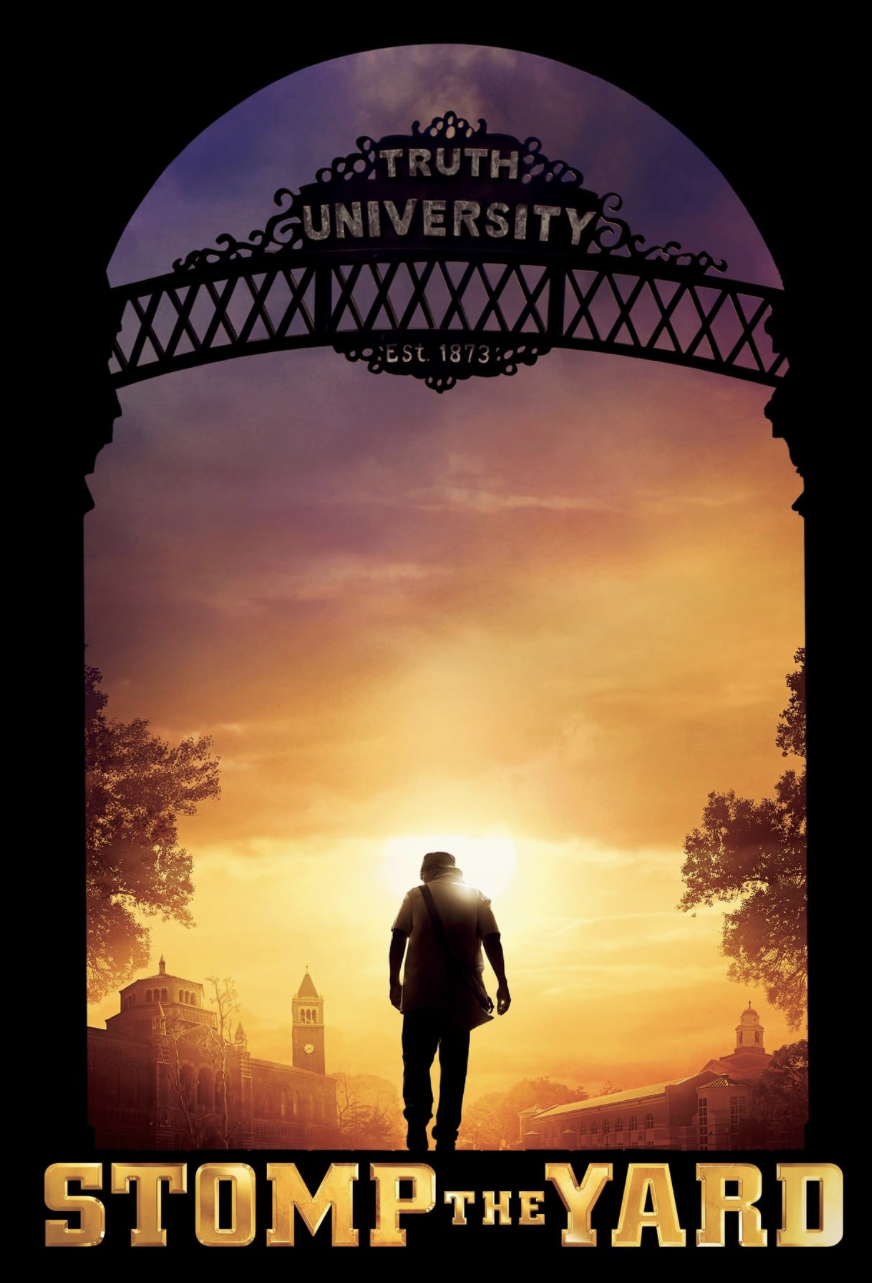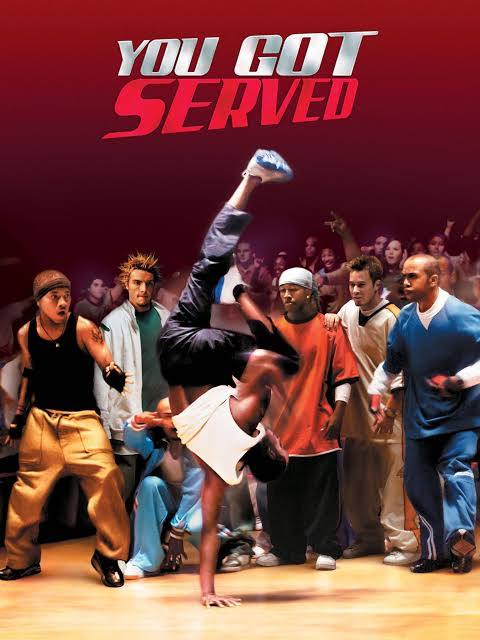

The early 2000s was a golden era for Black cinema, bringing us unforgettable stories, dynamic performances, and cultural moments that still resonate today. This collection features some of my favorite Black films from that time—each one holding a special place in my heart. In honor of Black History Month, I wanted to celebrate these films while also sharing a piece of who I am and what inspires me.
I've been dancing since the 4th grade, so movies centered around dance, drumlines, and music have always brought me immense joy. These films are more than entertainment; they reflect passion, rhythm, and culture. I hope you enjoy this journey through some of the most iconic Black films of the early 2000s! 🎬🔥

Drumline advises us, in a story centered on the marching band of a predominantly black
university in Atlanta. Devon (Nick Cannon), a drummer so good he was
personally recruited by the bandmaster, journeys from Harlem to the
middle-class world of Atlanta A&T, where he is the best drummer in the
band, and the most troublesome.
He's a hotshot, cocky, a showboat who adds a solo to the end of his
audition piece and upstages his section leader in front of thousands
of fans during a half-time show. The movie shows him gradually
drumming himself out of the band, and out of favor with Laila (Zoe
Saldana), the dance major he's dating. It also shows him growing up,
learning some lessons, and making a friend out of a former enemy. The
film sets Devon's story against the background of the BET Big Southern
Classic, a (fictional) annual competition between marching bands
that's held in Atlanta. His school's traditional rival is cross-town
Morris Brown University, a real school whose band is famed for its
halftime shows. MBU's band is flashy and high-stepping, doing anything
to please the crowd, while Atlanta A&T's bandmaster, Dr. Aaron Lee
(Orlando Jones), has more serious musical tastes and believes the
primary job of a band member is to learn. “Drumline,” directed by
Charles Stone, and written by Tina Gordon Chism and Shawn Schepps, is
entertaining for what it does, and admirable for what it doesn't do.
It gets us involved in band politics and strategy, gives us a lot of
entertaining halftime music, and provides a portrait of a gifted young
man who slowly learns to discipline himself and think of others.
That's what it does. What it doesn't do is recycle all the tired old
cliches in which the Harlem kid is somehow badder and blacker than the
others, provoking confrontations. Devon makes the nature of his
character clear in a heartbreaking early scene when, after high school
graduation, he talks to his father, who abandoned the family, and
tells him he doesn't do drugs, doesn't have a lot of little kids
running around, and has a full scholarship to university. This is a
movie that celebrates black success instead of romanticizing gangsta
defeatism. Nick Cannon plays Devon as a fine balance between a showoff
and a kid who wants to earn admiration. The key rivalry in the film is
between Devon and Sean (Leonard Roberts), head of the drum section and
the band's best drummer-until Devon arrives. They develop a personal
animosity that hurts the band, Dr. Lee believes. He disciplines Devon
for violations of the band rule book, for provoking a fight with
another band member and, most painfully, for keeping a secret that
Sean makes sure is revealed. Dr. Lee has a problem, too, with the
school president, who likes Devon's showboating and thinks the band
needs more pizzazz to please the alums. Orlando Jones makes his
character a thoughtful teacher, a little old-fashioned, who believes
in values. In creating this character, the writers must have been
thinking about real teachers they admired, since they avoid the usual
Mr. Chips/Dead Poets cliches. The love story between Devon and Laila
is sweet and remarkably innocent, for a contemporary movie. They share
one tender kiss, although the eagle-eyed MPAA rates the film PG-13 for
“innuendo.” Oh, I forgot: The MPAA also singles out “language,”
although this is one of the cleanest-talking urban movies in history.
If this isn't a PG film in today's world, what is? It is also, in a
very sincere way, touching. It pays attention to its characters, gives
them weight and reality, doesn't underline the morals but certainly
has them. “Drumline” joins titles like “Love Jones,” “Soul Food,”
“Barbershop” and “Antwone Fisher” in the slowly growing list of movies
about everyday African-American lives. What a good-hearted film. Note:
The filmmakers filled the Georgia Dome with 50,000 extras for the
rousing marching band showdown, which features the actual bands of
Morris Brown College and Clark Atlanta University, Bethune-Cookman
College in Daytona Beach, and Louisiana's Grambling State. Morris
Brown was a good sport to allow its bandmaster to be portrayed as the
villain.

Love Don't Cost a Thing is a remake of “Can't Buy Me Love” (1987),
a movie I despised, and yet this version is sweet and kind of
touching, and I liked it. The difference, I think, is that the new
one is lower on cynicism and higher on wisdom, and might actually
contain some truth about the agonies of high school insecurity.
Both films have the same premise: A nerd in his senior year is
getting good grades, but doesn't have a clue about dating. In
desperation, he bribes the most popular girl in school to date him
long enough to change his image. She agrees. The 1987 movie painted
its characters (played by Patrick Dempsey and Amanda Peterson) in
fairly mercenary terms, but the characters in the remake are
softened and made more likeable.
Alvin Johnson (Nick Cannon) sees his chance when Paris Morgan
(Christina Milian) turns up at the auto shop where he works, seeking
emergency repairs to the front end of her mother's Cadillac SUV. The
shop can't meet her deadline, but Alvin offers to help her out — in
return for two weeks of dating. What she doesn't know is that he'll
have to take the money he was saving for a science fair in order to
pay for a replacement part.
Movies like this are lightweight and forgettable; only this sequel
reminded me of “Can't Buy Me Love,” which had otherwise faded from
memory. But for its running time “Love Don't Cost a Thing” does its
job, and a little more. It has better values than the original, a
little more poignancy, some sweetness. And Cannon and Milian have a
natural appeal that liberates their characters, a little, from the
limitations of the plot.

Stomp the Yard is by far one of the best captivating and entertaining movies I have ever watched. If there is a movie which I can vote for completely, then it is the movie stomp the yard. This movie is about an inner city krump dancer, DJ, who moves to Atlanta, Georgia for a fresh start. In the movie, DJ's role is arrogant, over-confident, and determine to win the heart of April Palmer. The plot of the movie is so entertaining and touching that I could watch it everyday. This is my favorite movie because it focuses on responsibility and determination, it also shows how one person can not be above everyone else, it takes teamwork. Lastly, the movie shows how a man is to appreciate and treat the lady he loves.
Stomp the yard focuses on competing fraternity steppers at fictional Truth University. DJ channels his anger at “the system” though crunk dancing, and his innovative moves make him a crowd favorite. But when a fight with a rival team leads to his brother Duron's murder, DJ feels guilt and despair, which turns, no surprise, into more anger. Shipped off to Atlanta to live with his uncle and aunt, DJ finds new athletic, dance, and competition possibilities in stepping. At Truth, DJ is recruited by two fraternities who think his skills will help them win the national championship. He selects Theta Nu Theta because its leader, the one and only, Ernest Sylvester extols the virtues of brotherhood more than winning the title which of course, everyone focuses on winning.
I give full credit to the director, producer and editors of this film. They really kept their brains working when they were coming up with all the ideas composed of the film. Such ideas as stepping, DJ's love for April, Grant's rivalry with DJ, April father's grudge against DJ's uncle for having stolen his girlfriend back in the day and the Python's dream to beat The MU Gamma at the National championships.
This film is well directed. For instance, when DJ moves to Atlanta and joins The Truth University, he discovers, stepping, the dancing technique which is traditionally done in African-American fraternities. It is here where teams demonstrate their complex moves and create rhythmic sounds by the use of their bodies. For example DJ's talent sees him at the peak of hip-hop between rivalry of the two fraternities (Pythons and MU Gamma), the winner of which will be determined in front of a sold-out-arena at the annual championships, nevertheless, DJ has to overcome his own ego and learn the true meaning of brotherhood.
The film's nature has its audience fully involved. The editing of this movie was done with the highest perspective. Its rhythms are well edited, they are captivating and entertaining. In depth Stomp the Yard demonstrates responsibility and determination that makes this movie so real and interesting.
The costumes and make-up directors did a marvelous job. The fact is that the costumes used in the movie were captivating. The costumes added relevance to the motion and main ideas in the film. For example, at the last stage of the movie, The MU Gamma fraternity presented a show that incorporated wolf sounds. This was further enhanced by the fact that the group had worn torn clothes. The use of different costume by the different fraternities brought out their sophistication. The director selected costumes that are widely used by today's generation of dancing artists.

You Got Served is a formula melodrama about a subculture of fiercely competitive dance crews in L.A. At night they have showdowns in what looks like a boxing gym, taking turns doing routines, the victor decided by the crowds who fill the place to the brim and cheer so loud it sounds like a stadium. In the opening scene sometimes they jump and when they land their feet seem to cause the earth to shake, as if they are Titans. But mostly the movie tries to seem down to earth.
It centers on Elgin (Marques Houston, BEBE'S KIDS, HOUSE PARTY 3) and his best friend David (Omar “Omarion” Grandberry, WRONG SIDE OF TOWN). They and their friends are incredible dancers but sadly they talk about it more as a “way out” than an art or a passion or something they were born to do, even though it must be all of those things. In the opening battle the prize is $600, but I counted at least eight people they have to split it between. I'm sure battling is way better than working an 8 hour shift, but I don't think you could win enough of these to pay the rent. So David and Elgin reluctantly supplement it by doing deliveries for a drug dealer named Emerald (Michael “Bear” Taliferro, HALF PAST DEAD; later directed STEPPIN': THE MOVIE).
What unites them is a rivalry with a crew led by Wade (Christopher Jones, “Boy with Cross,” FORREST GUMP), who they deride as a spoiled rich kid without having to point out he's also one of the few white people in the movie. He's not a character we learn much about, but he makes a solid villain because they managed to find a legit dancer with the pitch perfect smug face, which they then highlighted and triple underlined with the most hate-inducing hairdo available. Look at that picture-- of course you want to see that guy defeated! He plays up to the look, remaining unsportsmanlike the whole time, doesn't even give a “LaRusso, you're all right” at the end. He does more of a Trumpian refusal to accept defeat.
References: "reference1" "reference2" "reference3" "reference4" "reference5" "reference6"